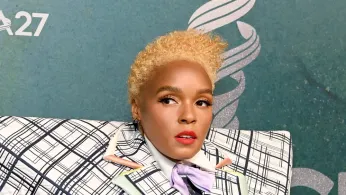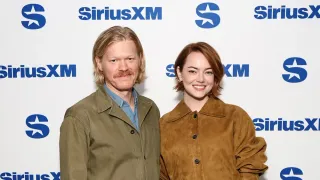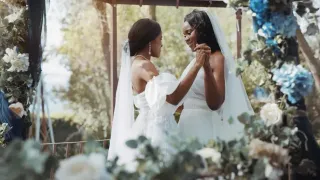
5 hours ago
Janelle Monáe Claims Time-Travel Experience to 1970s David Bowie Concert
READ TIME: 2 MIN.
Janelle Monáe, the celebrated musician and actor renowned for her genre-defying artistry and outspoken advocacy for LGBTQ+ communities, has ignited a wave of discussion with her most recent revelation: during an interview with musician Lucy Dacus, Monáe stated that she"traveled back in time and saw David Bowie" perform his iconic Ziggy Stardust show in the 1970s. The claim, delivered with Monáe’s characteristic flair, has captivated fans, pop culture commentators, and the broader music world .
In the interview, Monáe described her supposed journey: “I traveled back until the 1970s and I saw do Ziggy Stardust and the Spiders from Mars and it was incredible.... It was backstage and I was like, this is what I want to do and so I jetted back to, you know, the 2000s and I was like I can have the musical, make the music, create the lyrics and create community” .
Her interviewer, Lucy Dacus, appeared visibly surprised by the claim, prompting Monáe to elaborate on the experience with a straight face. The conversation quickly circulated online, with social media and entertainment outlets discussing the authenticity and artistic symbolism behind Monáe’s statement.
Monáe’s comment is consistent with her long-standing artistic persona. She is known for blending science fiction, Afrofuturism, and queer narratives into her music and performances. Her albums, such as “Dirty Computer” and “The ArchAndroid,” frequently feature futuristic themes and alternative realities, using speculative motifs as metaphors for identity, liberation, and community .
The reaction across social media platforms has ranged from playful skepticism to outright support for Monáe’s creative freedom. Entertainment commentators have joked about Monáe’s “portal travel” and speculated humorously about her next project being produced by music legends like Tupac or Prince .
Yet, within LGBTQ+ and artistic communities, Monáe’s willingness to blur boundaries between fact and fiction is celebrated as part of her ongoing challenge to conventional narratives. Her story has been described as an example of “forward thinking” and open-mindedness, with some suggesting that Monáe has always been ahead of her time—artistically and culturally .
David Bowie’s influence on Monáe is well documented. Bowie’s own gender-bending performances and unapologetic embrace of queer aesthetics have made him an enduring icon for LGBTQ+ musicians and fans . Monáe, who has publicly identified as pansexual and nonbinary, has often cited Bowie as a foundational inspiration for her approach to music, fashion, and identity .
By linking her artistic journey to Bowie’s legendary Ziggy Stardust era, Monáe underscores the importance of LGBTQ+ representation in entertainment and the power of fantasy as a tool for empowerment. Her story serves as a reminder of the ways in which creative expression allows marginalized voices to reimagine their place in history and culture.
Whether Janelle Monáe’s claim is taken as literal fact or creative allegory, its impact on cultural conversation is undeniable. By invoking time travel to a pivotal moment in LGBTQ+ music history, Monáe continues to push boundaries, inspire dialogue, and affirm the power of imagination in shaping not only artistic identity but also community and social change.
As conversations continue online and in the press, Monáe’s story stands as a testament to the enduring influence of David Bowie, the transformative potential of queer artistry, and the limitless possibilities of creative self-expression.






